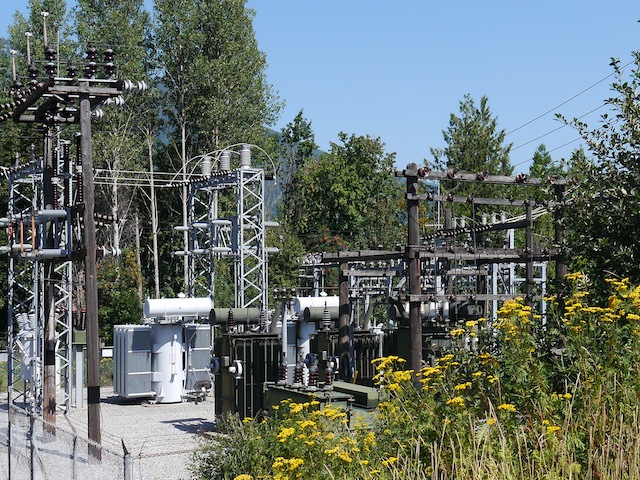Energy Expert Thinks Nelson’s Ecosave Program Doesn’t Go Far Enough
Michael Jessen thinks we need to reduce our home energy consumption by 70-90% and that the City of Nelson’s home energy retrofit program does not go far enough.
He says the goal for our homes should be zero energy use, and ultimately each home would actually generate energy. The urgency of the world energy crisis demands this, he says.
Jessen is a Nelson writer and consultant with expertise in recycling, waste, and energy. His column appears occasionally in The Nelson Daily.
Councillor Macdonald agrees, but…
“I agree that we need to reduce by 70 to 90 percent,” says Councillor Donna Macdonald. “But from a practical point of view, how do we persuade people of the urgency of the situation so they will be our partners in achieving that reduction? If he has some good ideas I would be glad to hear them because it is not something the city can impose. We can only influence.”
Under the recently started Ecosave Energy Retrofit Program, Nelson homeowners may borrow up to $10,000 from the city at very low interest rates to increase the energy efficiency of their residences. The scheme includes “on-bill financing,” in which borrowers’ monthly loan payments may comprise a part of their hydro bill.
The program has had more than 200 subscribers in its first three months in Nelson. Its home energy assessment measures air leakage into the house and makes recommendations on how to reduce it.
Jessen says we need a “deep energy retrofit”
Jessen thinks it’s not enough to just seal the leaks. He is calling for a “deep energy retrofit” of all buildings in the community. “Look at every house as a system,” he says, including the furnace and other appliances such as dryers and hot water heaters. “If they are over a certain age they are a big drain on energy use. Lighting also has an effect.
“There are, according to the 2011 census, 2400 homes in Nelson,” he says, “and 2360 were built before 1996, and only 305 of them have reported major repairs, so there is a tremendous amount of potential still. Somewhere between 60% and 70% of the homes in Nelson that will be around in 2050 are already built. Therefore we need to fix them up.”
Macdonald says municipalities put out lots of emissions but little power to control them
“I would like to be more radical but we don’t have the tools,” says Macdonald. “Really it is the federal and provincial governments that can actually make things happen through laws and building codes and emission standards. Municipalities, although they say we oversee 70% of emissions, don’t have the same power, and so we influence through trying to provide a better transit system, or through providing a retrofit program like the Ecosave program.”
Jessen says think differently about Nelson Hydro
Nelson is unique among municipalities in B.C. in that it has its own electrical utility (Nelson Hydro). The utility spends more than $5 million annually to purchase power from Fortis B.C. because it cannot produce enough power on its own for its Nelson customers. Jessen thinks a deeper energy retrofit of buildings in Nelson could eliminate Nelson Hydro’s dependence on Fortis.
“Nelson Hydro still generated a healthy profit of over $4 million in 2011,” he says, “and $2.25 million of that went to help lower taxes for homeowners in Nelson. So if that $5 million power purchase from Fortis could be reduced substantially that will generate more profit and generate bigger dividend to the taxpayers of Nelson.”
For both Macdonald and Jessen, it’s about greenhouse gases
Despite his concerns, Jessen agrees that the Ecosave Program is “a good start. But it is basically seed money, it is not sustainable funding, it is a one-time pot of money. What the city should be doing right now is finding out where it can find sustainable funding to continue this program year after year.”
“For sure, we are not going to forget about a long term plan,” says Macdonald. “There are things we have to lobby for, and innovative things we can try, and we need to use social marketing.
“The success stories that come out of this Ecosave pilot will help,” she said. “I think people are learning a lot from it. We framed it as energy savings and saving money but it is really for me about reducing greenhouse gases. Not everyone is motivated to reduce greenhouse gases but they are motivated to decrease household costs.”
Clotheslines and smart meters
Jessen agrees with Macdonald about the need for social marketing. For example, he says, we need to stop using dryers and bring back the clothesline. “We need to change people’s energy use behaviour so they don’t see it as something they can just flick on and off at will, but something they have to consider using very prudently. While there is a lot of opposition to smart meters, that is one program that can provide the homeowner with real time information about how much energy they are using and where it is being used in the house. All the research I have read says that any time you can provide someone with that kind of real time information, their behaviour will change.”

























